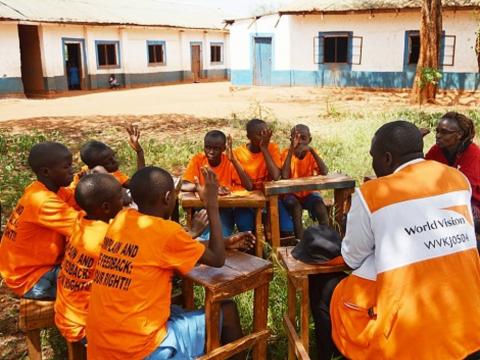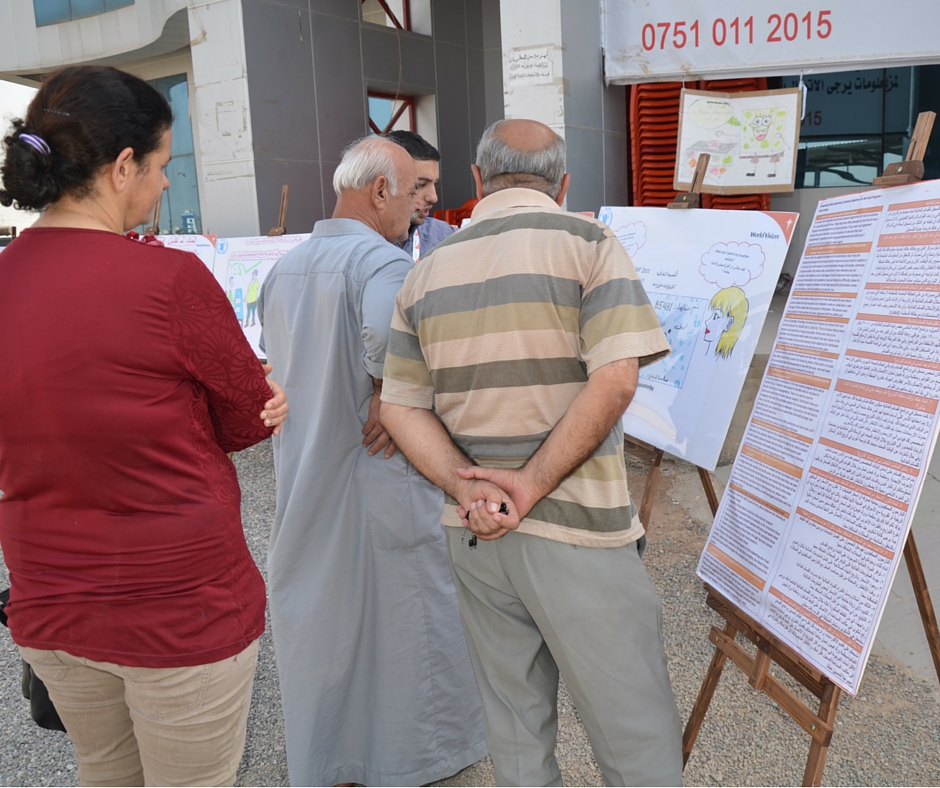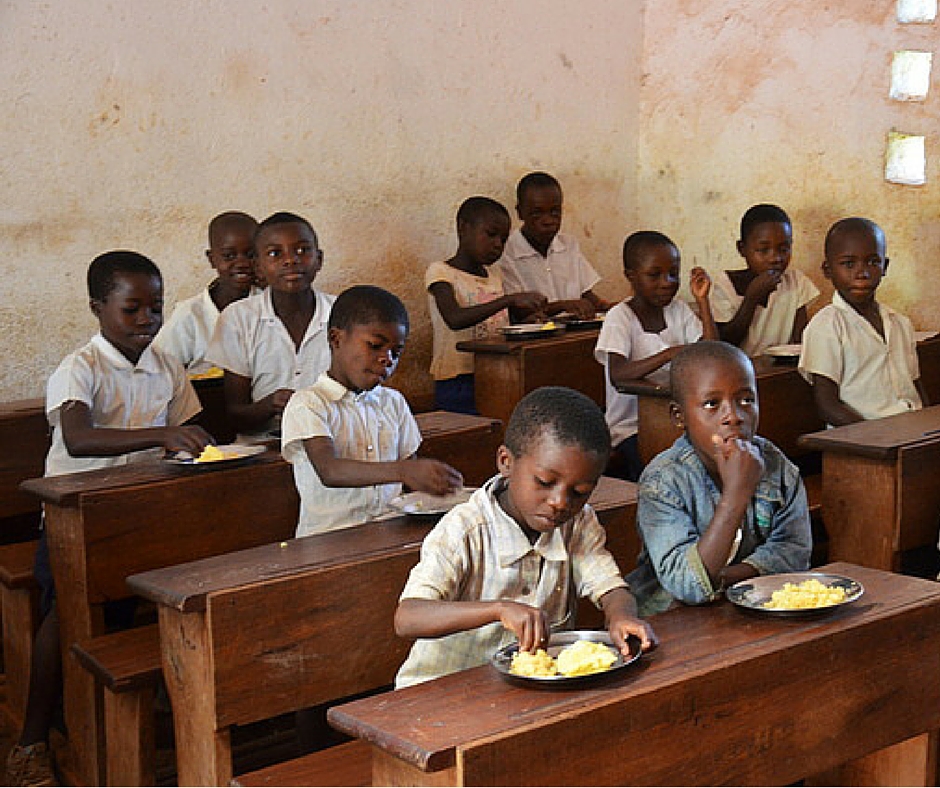Accountability to affected populations

When your internet connection fails, who do you call for support? The toll-free hotline. While your experience with hotlines may be limited to tech support or billing issues, World Vision is using them to remain accountable to the people it serves with food assistance and more.
Catherine, from Kilifi, Kenya remarks, ‘I simply make a call to the hotline number if I have an issue. World Vision staff receives the calls and talks to me in a loving way that encourages me to say all that I have without reservation. I have memorized the hotline number and use it whenever I want.’
In Kenya, World Vision uses hotlines to receive feedback
Across countries, programmes and communication channels, World Vision works to ensure the children, families and communities with whom it works are central. World Vision’s organizational commitment to remain accountable to the poor and vulnerable who feel the impact of its work in food assistance was recently documented in the new report Accountability to Affected Populations. As Elie Gasagara, Vice President of Global Accountability puts it, ‘World Vision is an accountable organisation. We want to build a culture of accountability at all levels, in all we do.'
The four pillars
From Kenya to Iraq, World Vision’s Food Assistance programming is committed to provide information, consult communities, promote participation as well as collect and act on feedback – the Four Pillars of Programme Accountability. There are a suite of methods to ensure programme accountability, context, culture and security play important roles in determining the most effective mechanism. As Francis from Sudan mentions, ‘Context is critical, there is no such thing as one size fits all.’ Dr. Marumbo Ngwira, Director of Programme Development, adds, ‘The most important thing is that the voices of the community are heard and acted upon.’
Sharing information empowers affected populations to understand the programme and their rights, enhances transparency, reduces abuse, builds trust and invites active involvement. World Vision shares information via banners, brochures, broadcasts, community meetings and even cartoons.
Communicating cartoons
Innovatively, in the Kurdish Region of Iraq, World Vision’s food assistance programmes draw cartoons detailing responses to Frequently Asked Questions and posts these in the form of a ‘gallery walk,’ almost like an art show. Raid from Erbil remarks, ‘I am very interested in the gallery walk and these posters because it’s a simple drawing with a deep meaning; even kids can understand the idea.’
Refugees in the Kurdish Region of Iraq reading FAQ cartoons
Consultation and participation improves programme quality at all stages. World Vision collaborates with communities through, joint planning, serving in committees and learning events.
Feedback mechanisms provide channels to continuously and intentionally listen and respond to affected populations. This enhances two-way communication and builds a sense of security and comfort. World Vision listens and responds to communities via help desks, suggestion boxes and toll-free hotlines.
Gender balance is a special consideration when selecting community members to serve on Community Help Desks, especially where the majority of participants are women. As one village elder in Kilifi, Kenya put it, ‘We first recommend that women are given priority, because they have good hearts to listen to complaints.’
Small voices, powerful messages
Children from Nyamashege Primary school in eastern Democratic Republic of the Congo remark, ‘If there is no suggestion box at my school, there will be no means for us to express our concerns on the food to World Vision.’
Children enjoying a school meal at primary school in South Kivu, EDRC
Regardless of the country and the communication channel, World Vision’s food assistance programming remains accountable to affected populations. This was further exemplified in World Vision’s commitment ‘to advocate for accountability and unequivocal respect of International Humanitarian Law and International Human Rights Law,’ made during the World Humanitarian Summit in May, 2016.
So the next time you are on-hold with a hotline, recall it’s your right to be informed, consulted, participating and responded to, just as it is the right of every man, woman and child with whom World Vision works and is committed to.


